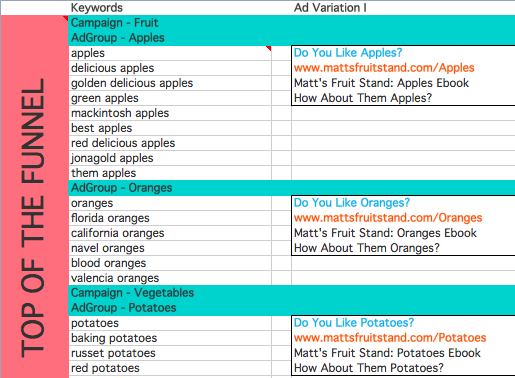Be intentional about including the following tactics in your new year marketing strategy As 2025…

Pay Per Click – Good Industrial Marketing Idea or Money Pit?
With careful consideration, thoughtful planning, and the right hacks, Pay Per Click (PPC) advertising can be a helpful resource investment alongside other marketing campaigns. Thanks to Marcel Pirlich for his PPC email this morning as inspiration.
Five core aspects of PPC:
1) Define your goals.
Ask yourself:
• What do we offer? What makes us special? Where do we offer our product?
• Who is our target audience? Where are our potential customers? What do we want our prospects to do?
• What is our budget? How much do we want to spend monthly on PPC? How much do we want to pay for one new customer, sign-up, etc.?
The more specifically you can answer these questions, the more effective your PPC advertising will be.
2) Develop a comprehensive keyword list.
When it comes to keyword selection for startups, long-tail terms are great ones to go after. They’re highly targeted and may be more cost-efficient than more competitive terms.
The best way to do this is to understand the questions about your business and audience. Once you know broad terms related to your business, do some research to figure out some of the popular long-tail searches related to those terms. The chart illustrates different types of keywords for the different buying cycle stage: top of the funnel (research), middle of the funnel (specifications) and bottom of the funnel (buying).
3) Know your competitors like your best friend.
After identifying your goals and a solid keyword list, complete a competitive analysis — not so you can obsess over them, but so you can identify opportunities.
Do other company’s offer a strong differentiation? Are they bidding on keywords you’ve missed? How are their ads and landing pages different from yours? Asking yourself these questions can provide clarity regarding who else is in your market and what their acquisition tactics are.
4) Track your conversions right from the start.
If you can’t attribute actual leads and customers to your PPC activities, you can’t make intelligent decisions about where to cut spend (or increase it).
Knowing which ones led to clicks, leads, and customers can give you a clear picture about the success not only of your PPC campaigns, but also about your target audience and how you can adjust your messaging across all your marketing assets. Sometimes a goal is just an RFQ or contact page.
5) Continue to fine-tune your PPC campaigns — and skills.
The best business concept is worthless if you don’t know how to promote it online. Being successful with PPC requires becoming a real pro. How do you start? Learn from experts, and never stop informing yourself, because the truth is this: PPC is highly dynamic and constantly has new updates and features.
Just know this if you begin working on a PPC campaign: It requires some close attention to ensure your ad dollars are being used effectively. So don’t start it with a set-it-and-forget-it approach; your budget and results will benefit from close attention.
If this much attention to your web site is too much, you may like, “A More Reserved Internet Marketing Strategy.“



